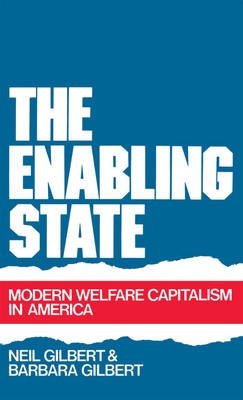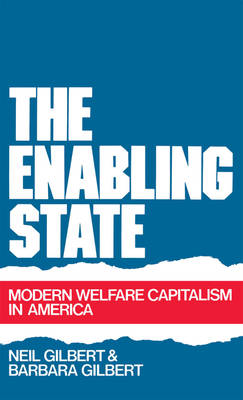
- Afhalen na 1 uur in een winkel met voorraad
- Gratis thuislevering in België vanaf € 30
- Ruim aanbod met 7 miljoen producten
- Afhalen na 1 uur in een winkel met voorraad
- Gratis thuislevering in België vanaf € 30
- Ruim aanbod met 7 miljoen producten
Zoeken
The Enabling State
Modern Welfare Capitalism in America
Neil Gilbert, Barbara Gilbert
Hardcover | Engels
€ 116,45
+ 232 punten
Omschrijving
Over the last two decades new arrangements have emerged for the finance and delivery of social welfare in the United States and other industrial democracies. Moving beyond the conventional paradigm of the welfare state, these arrangements form an alternative model. This study details a fresh vision of social welfare transfers--how they are delivered, and whom they benefit. The authors explore the use of private enterprise and market-oriented approaches to the delivery of social provisions, and examine how welfare benefits are derived from the full range of modern social transfers including tax expenditures, credit subsidies, and those induced by regulatory activity. Reappraising the modern boundaries of social welfare, this book provides insights into the structure and dynamics of a novel social model that will open new avenues for scientific study and public debate.
Specificaties
Betrokkenen
- Auteur(s):
- Uitgeverij:
Inhoud
- Aantal bladzijden:
- 240
- Taal:
- Engels
Eigenschappen
- Productcode (EAN):
- 9780195058949
- Verschijningsdatum:
- 19/10/1989
- Uitvoering:
- Hardcover
- Formaat:
- Genaaid
- Afmetingen:
- 149 mm x 226 mm
- Gewicht:
- 458 g

Alleen bij Standaard Boekhandel
+ 232 punten op je klantenkaart van Standaard Boekhandel
Beoordelingen
We publiceren alleen reviews die voldoen aan de voorwaarden voor reviews. Bekijk onze voorwaarden voor reviews.











